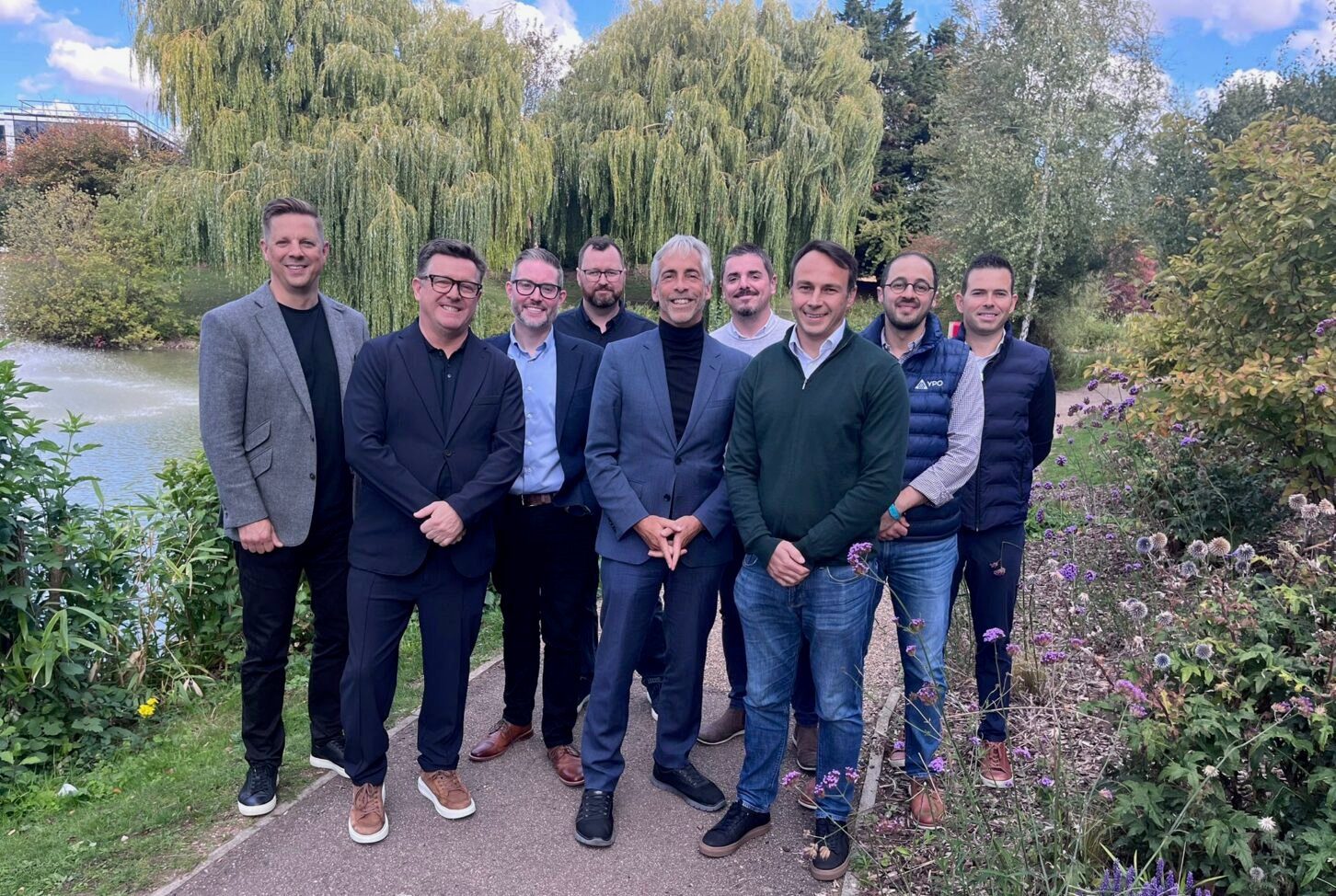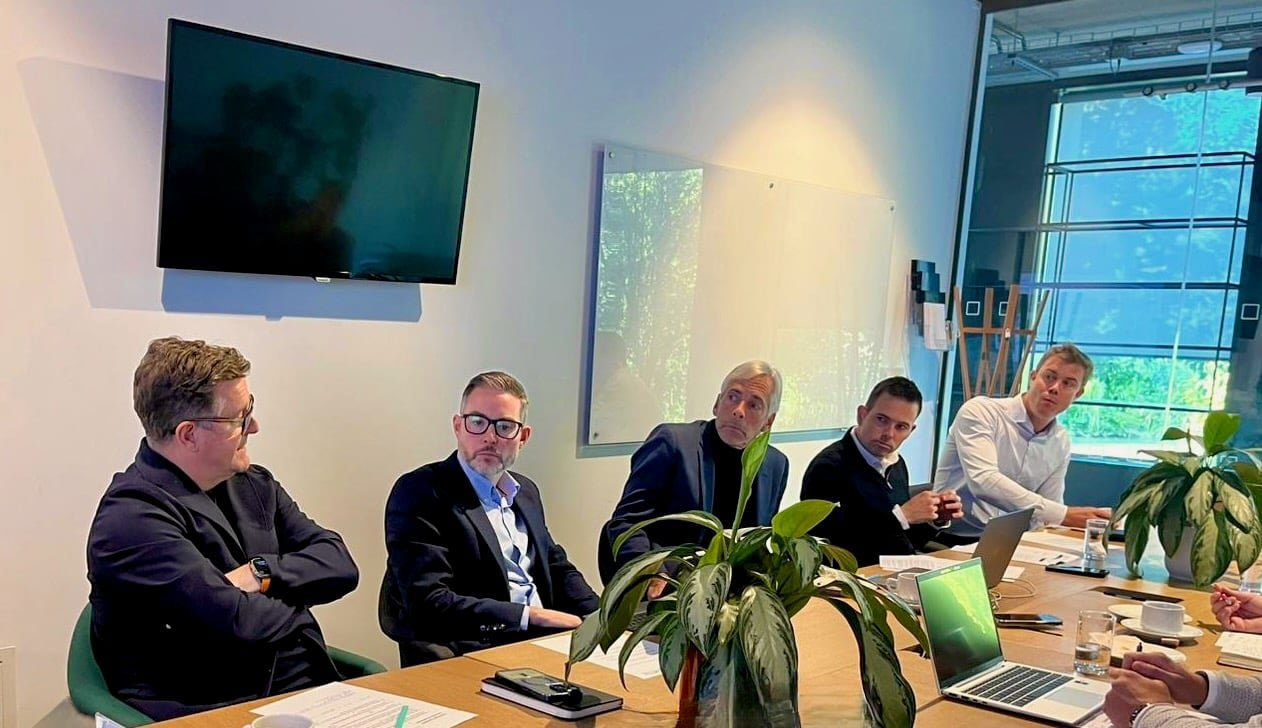Cambridge is fast becoming a global hub for innovation, with its most notable promise in the deeptech and life sciences sectors drawing comparisons to Silicon Valley.
The annual Cambridge Tech Week, held in September, celebrated the city’s culture of collaboration among academics, enterprise and government, shining a spotlight on its status as a powerhouse for producing world-leading research and startups.
According to latest figures, almost half (45%) of funding rounds recorded so far this year were completed outside of London. The top regional hub for VC funding was Cambridge, totalling £1.5bn, demonstrating the region’s significant role in supporting the UK’s wider innovation strategy.
As the region’s tech week came to a close, UKTN hosted a roundtable at the Bradfield Centre, a co-working space that offers a collaborative community for tech startups in the heart of Cambridge Science Park.
Tech and investment experts from across the region were invited to share their thoughts on the city’s budding business ecosystem and the challenges it must overcome to extend its presence on the world stage.

Mike Anstey, partner at Cambridge Innovation Capital, emphasised that for those looking to get involved with deeptech and life sciences, the world’s leading research is coming out of Cambridge.
“When you look at all the metrics, there’s an opportunity [here] around growth of venture-backed companies,” he said.
This was agreed by Ian Bagshaw, London office managing partner at Perkins Coie, who noted how Cambridge is the full package for innovators.
“It’s a great place to live, has one of the best universities in the world, attracts great talent, brings in postgraduate talent with a business focus, [and] accelerates undergraduate talent into a business focus.”
Supporting UK ambitions
Cambridge’s burgeoning startup ecosystem is supporting the UK’s mission to be at the forefront of frontier sciences and become home to an increasing number of world-leading scaleups and startups. The city is the springboard from which notable high-tech companies and spinouts have already been formed – notably, the likes of Arm, Darktrace and Abcam.
“For the UK to become a true global tech leader, supporting our regional technology ecosystems is crucial,” said Keith Breavington, relationship manager at Lloyds.
“The collaboration and focus across the Oxford-Cambridge corridor as a whole is a great example to other regions and can help power national growth.”

Cambridge’s startup scene is also linking up with other innovation hubs across the country to spread such capacity beyond the South East. One example is the partnership between the University of Manchester and the University of Cambridge, which was awarded £4.8m by Research England in June to accelerate inclusive growth and innovation collaboration.
Such university-led and cross-UK collaboration can enhance the UK’s global competitiveness and promote innovation-driven growth, crucially boosting business building in regions outside of London.
Fostering growth
According to panellists, more needs to be done by the government to facilitate positive change and support Cambridge – and other regions outside of the capital – to grow into major UK innovation hubs. One example of such government involvement, Orestis Tzortzoglou, vice president and head of UK market at BioMed Realty suggests, is tax breaks and further targeted regional investment.
Lessons can be taken from global hubs too. Kamiar Mohaddes, co-founder and director of King’s Entrepreneurship Lab at Cambridge University, explained how US universities such as USC, NYU and Stanford embrace the spirit of entrepreneurship and point students in the direction of new ventures – something that doesn’t translate at UK universities.
“The moment people arrive at Cambridge University, and other universities across the country, all the focus is on getting a first-class degree. The problem is, we do not create an innovation pathway for students, so we don’t have enough people who want to do cool things,” said Mohaddes.
Despite these ambitions, Russ Shaw, founder of Global Tech Advocates, emphasised that the multitude of positives offered by Cambridge are acknowledged worldwide.
“I travel the world and hear wonderful things about the Cambridge ecosystem from graduates everywhere; in places such as China, India and the US.”
He also noted how through the Cambridge-Oxford arc, Cambridge has a significant opportunity to create something different and exciting that builds on its successes in life sciences, quantum and AI, adding that the prospect is “incredibly powerful”.
Creating an ecosystem to help students step into commerce is important too, according to Chris Baker, partner at LDC. “In today’s world, younger people care more about the world and their purpose. When that is placed in an ecosystem such as Cambridge’s, you can foster those smarts with its network of mentorship and alumni.”
Looking ahead, the UK government has bold ambition growth targets, such as accounting for at least 50% of all new unicorns created across Europe by 2030. Playing to existing strengths could be one such way each region can boost its innovative output and propel new businesses to scaleup and unicorn levels.
“The collaboration and focus across the Oxford-Cambridge corridor as a whole is a great example to other regions and can help power national growth”
This is a view shared by Adam Brodie, co-founder and partner at Finerva, who believes Cambridge must focus on its specialisms to compete on the global stage.
“If the region can continue to focus on what it is good at, that is where it is going to find success.”
Cambridge’s innovation ecosystem is not only shaping the future of UK tech, but setting a global benchmark for collaborative, research-driven growth.
Lloyds is committed to supporting ambitious startups and scaleups on their growth journey. Please get in touch today to discuss how they might help your business.
Any data sent via e-mail is not secure and could be read by others. Lloyds and Lloyds Bank are trading names of Lloyds Bank plc.
Registered Office: 25 Gresham Street, London EC2V 7HN. Registered in England and Wales no. 2065. Telephone: 0207 626 1500.
Authorised by the Prudential Regulation Authority and regulated by the Financial Conduct Authority and the Prudential Regulation Authority under Registration Number 119278.

